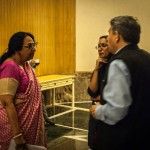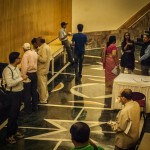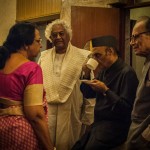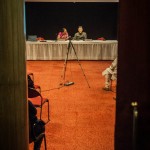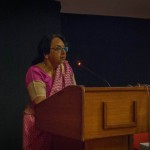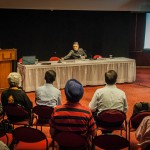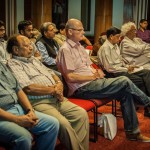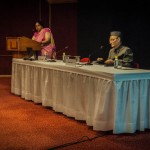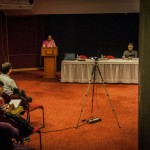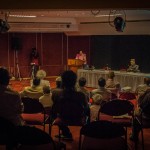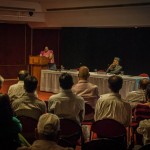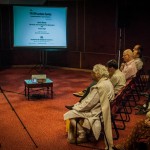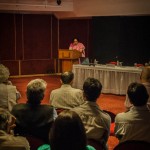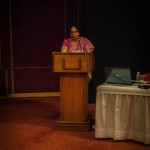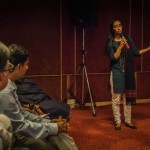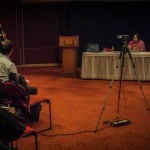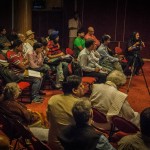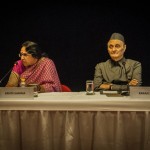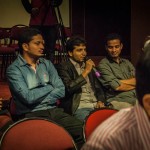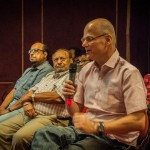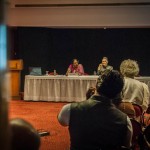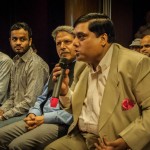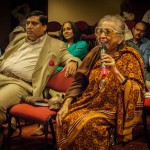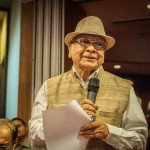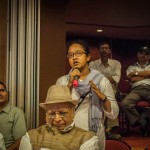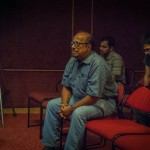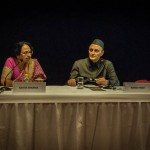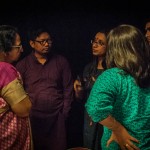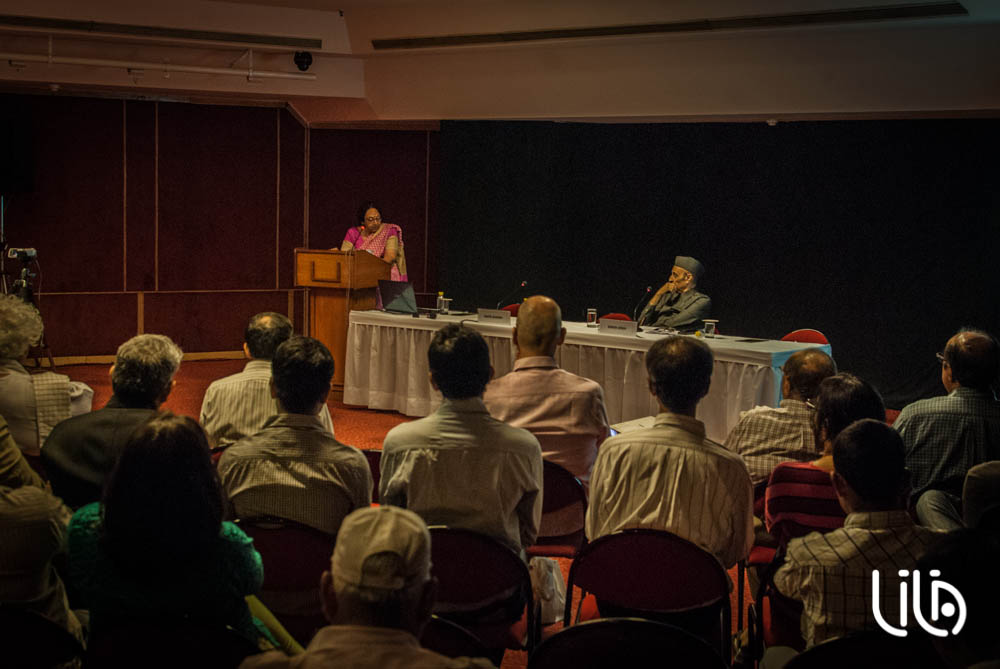
In these times, when the society has to grapple with the glorification of a homogenising culture on the one hand and communal coding on the other, the question of the role of education in governance has to be a critical concern. The Dadri lynching, burning of a Dalit family in Faridabad, subjugation of religious liberty and many more developments reflect the levels of intolerance. How do we understand the role of education in this context and how can the seeds of transformation be sowed?
It was with this background that Kavita Sharma, President of South Asian University, delivered her insightful talk on Education and Transformative Governance at the LILA PRISM Lecture Series. The curated series is organised by the cultural think tank LILA Foundation for Translocal Initiatives. Karan Singh, senior parliamentarian and proponent of interfaith dialogue, chaired the lecture.
Kavita Sharma began with a discussion on the nature of knowledge which ultimately shapes educational practices. Reflecting on the actual learning practices, she emphasised the role of group learning, in creating environments which simultaneously educate and refreshe the mind. Such modes of knowledge gathering will help evolve collective aspirations that can resonate with societal concerns. This creates a milieu where the pressure is shared and the culture of jealousy and negativity is replaced by gentler emotions.
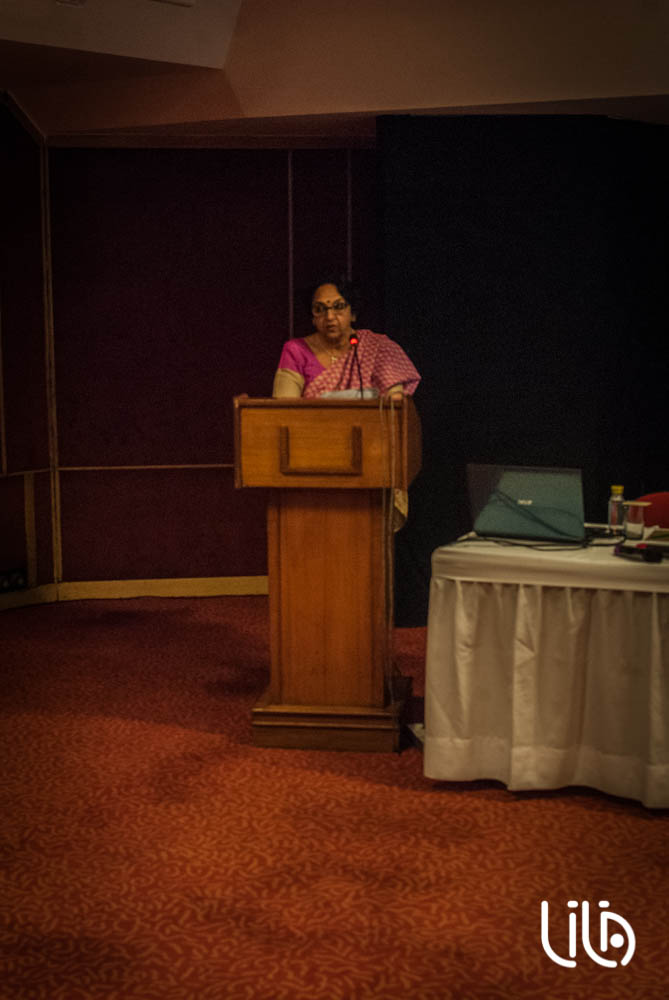
Research was another area which Kavita Sharma stressed with utmost concern. Original research has been virtually absent due to misplaced notions of why one should be researching in the first place. How relevant is the research question to the subject’s seeking and organic context is never confronted within our system… She felt that it is the need of the hour to bring together researchers across fields to generate collective opinions and solutions to many social concerns. For collective action to materialise, dialogue and discourse is indispensable.
Higher education has lost its connectivity with the individual and community, and is being run by niche establishments. There needs to be accessibility at the individual and community levels to bring each community out of ignorance and let the individual grow internally. Internal growth will help instill “self-awareness” which will in turn make peace a more meaningful choice over aggression, depression and self-persecution.
Many interesting questions were raised during the question hour – on the role of critical thinking in education, the need for more counseling programmes for students, the difference between a time-bound and more liberal exam pattern, the equipping of teachers with more skills, the lack of funding for research in India, the communalisation of school curriculum and Indian universities lagging behind in the global rankings, the Four Year undergraduate Programme (FYUP) of the Delhi University, the feasibility of trying out successful models from other parts of the world etc.
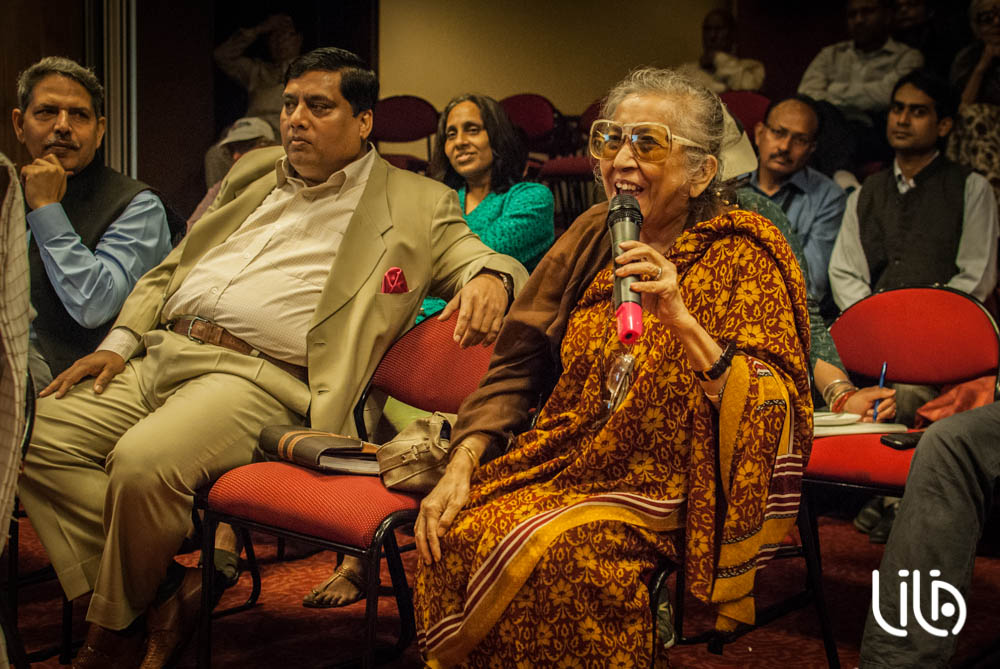
The speaker stressed the need for implementation, affirmative action, collective aspirations and communication across sectors for rejuvenating the field. Karan Singh moderated the question and answer session – responding to the ideas discussed in the lecture and reflecting on the possibility of sharing an ethos which respects rational thinking and a boundless science. He discussed the Four Pillars of Learning: Learning to Know; Learning to Do; Learning to Live Together; Learning to Be. Among other things, he pointed out the threat religious fundamentalism poses to society and dwelt on the need for a population control policy, with India being the second most populated country in the world and having increased its population three-fold since independence.
Kavita Sharma’s lecture, which drew from her close engagement with the field through decade-long experience in research, teaching and public administration, enlivened the minds of a packed gathering on the evening of 25 October 2015 at the India Habitat Centre, New Delhi.
Koshy Leju Mathew
Koshy Leju Mathew is a civil service aspirant based in Delhi.
Kavita Sharma is the President of the South Asian University, Delhi. She has been an active contributor to the cause of higher education through her teaching, publications and the institutions she has been associated with. Karan Singh is Member of the Rajya Sabha, and Chairman of its Ethics Committee. He is a senior politician of the Indian National Congress. He chaired the lecture and moderated the discussion. More details about the participants and the event here.


